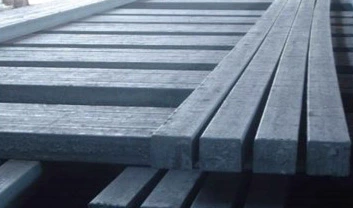Get A Quote
BIS Certification for Carbon And Carbon- Manganese Free- Cutting Steels IS 4431: 1978

The material
satisfies quality and safety requirements for use in manufacturing and
industrial applications, thanks to its BIS Certification for Carbon and
Carbon-Manganese Free-Cutting Steels IS 4431: 1978. By confirming adherence to
Indian regulatory standards, this certification aids firms in gaining market
confidence and trust.
For Carbon and carbon-manganese free-cutting steels (IS 4431: 1978) to be sold lawfully in India, the product must be BIS certified, which certifies that it has undergone performance, composition, and durability testing under the Bureau of Indian Standards.
Introduction
The Steel and Steel
Products (Quality Control) Order, 2024, now requires that carbon and
carbon-manganese free-cutting steels be certified by the Bureau of Indian
Standards (BIS) under IS 4431:1978. To improve customer safety and product
dependability, this rule makes sure that manufacturers adhere to stringent
quality, safety, and performance criteria. By using standardised quality
standards, obtaining BIS Certification for Carbon and Carbon-Manganese
Free-Cutting Steels IS 4431: 1978 enables companies to show that they conform
to Indian regulatory standards, improve the credibility of their products, and
more easily access both local and international markets.
Why is BIS certification necessary for Carbon And Carbon-
Manganese Free- Cutting Steels IS 4431: 1978?
To guarantee that the material satisfies specified safety, quality, and performance criteria, Carbon and Carbon-Manganese Free-Cutting Steels IS 4431:1978 require BIS certification. This promotes consumer trust, facilitates regulatory compliance, and keeps production consistent. In industries where accuracy and longevity are crucial, such as engineering, construction, and the automobile sector, it is particularly significant. Assuring dependability, quality control, and market acceptance for producers and end users, BIS Certification for Carbon and Carbon-Manganese Free-Cutting Steels IS 4431: 1978 ensures that the product complies with Indian requirements.
Overview of Indian Standard IS 4431: 1978
For carbon and
carbon-manganese free-cutting steels, which are mostly utilised in the
production of parts that need to be easily machined, Indian Standard IS
4431:1978 lays out the specifications. To guarantee product quality and
performance, this standard describes the mechanical characteristics, chemical
makeup, and testing procedures. It encourages safety and dependability in
end-use applications and guarantees consistency in manufacturing. Companies
that want to manufacture, sell, or import carbon and carbon-manganese
free-cutting steels (IS 4431: 1978) legitimately in India must adhere to the
regulations.
Process for BIS Certification
The BIS certification process for Carbon and
carbon-manganese-free cutting steels, IS 4431: 1978, involves multiple steps
designed to thoroughly evaluate a product's compliance with the required
standards. Here is a general overview of the certification process:
1. Application Submission:
Manufacturers must submit an application form along with the required
documentation to BIS.
2. Documentation Review: BIS
reviews the submitted documents to ensure completeness and correctness.
3. Factory Inspection: BIS
officials conduct an on-site inspection of the manufacturing facility to assess
the production process and quality control measures.
4. Sample Testing: Product samples
are taken and tested in BIS-approved laboratories to verify compliance with
Indian standards.
5. Certification Grant: Upon
successful completion of the inspection and testing, BIS grants certification,
allowing the manufacturer to use the BIS mark on their products.
Documents Required for BIS Certification
To apply for BIS certification, manufacturers need to submit the following documents:
● Application form
● Manufacturing process details
● Quality control plan
● Test reports from BIS-approved laboratories
● Factory layout and equipment details
● Proof of business registration
● Product specifications and technical details
● Declaration of conformity to Indian standards
Additionally, manufacturers may be required to provide proof of compliance with environmental and safety regulations, depending on the specific type of product being certified.
BIS ISI Mark Certification Costing And Timeline
To Know The Process in Detail, Please Visit:
Under BIS Registration Products ISI and CRS
Conclusion
In conclusion, producers hoping to achieve quality, safety, and compliance standards in the Indian market must receive the BIS Certification for Carbon and Carbon-Manganese Free-Cutting Steels IS 4431:1978. Customers and other stakeholders are reassured by this certification that the product complies with Indian standards, which increases marketability and confidence. At EVTL India, we offer professional advice and comprehensive consulting services to assist companies in smoothly and effectively navigating the challenging process of earning this important certification. Our staff makes sure that everything runs smoothly and without any problems, from paperwork to product testing and collaboration with BIS authorities. Manufacturers may increase their reputation and obtain a competitive advantage in both local and foreign markets by obtaining the BIS Certification for Carbon and Carbon-Manganese Free-Cutting Steels IS 4431:1978. You may rely on EVTL India to be your trustworthy partner in attaining complete adherence to Indian regulatory requirements.
Free Call Back
Latest News & Update
📅 BIS Critical Component List (CCL) Updates for Solar PV Modules
🕒 BIS Fee Concessions for MSMEs and Startups | EVTL India
📅 Guidelines for Implementation of Essential Requirements for Security of CCTV
🕒 Omnibus Technical Regulation (OTR) Amendment Order, 2025
🕒 Extension of Timeline for Filing Annual Returns by Battery Producers
📅 Extension of Timeline for Filing Quarterly and Annual Returns for E-Waste
🕒 Extension of Concurrent Running Period for IS 302-1: 2008 and IS 302 (Part 1): 2024
🕒 BIS Guidelines for Grant of Licence (GoL) | EVTL India
📅 CPCB Guidance on filing of Application, Fees and more
🕒 CPCB Notification on Labelling of Plastic Packaging
📅 Mandatory Compliance for Input Materials of Steel and Steel Products for Imports
🕒 BIS Guidelines for Scheme-X Certification for OTR-Regulated Products
📅 BIS Upgrades Product Certification License Numbers to 10-Digit Series
🕒 BIS Certification No Longer Mandatory for 14 Chemical & Polymer Categories
Why Choose EVTL INDIA
Expertise in Indian Regulatory Standards
End-to-End Support
Trusted by Top Indian & Global Brands
Fast Processing & Transparent Pricing
Strong Liaison with Indian Authorities
Company Profile














